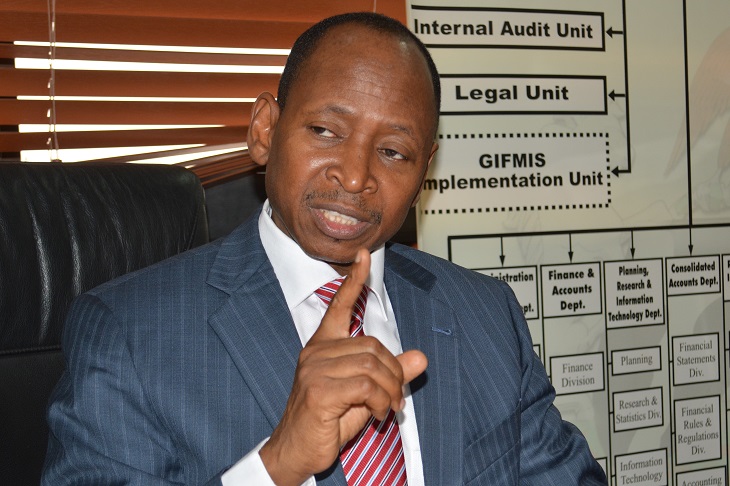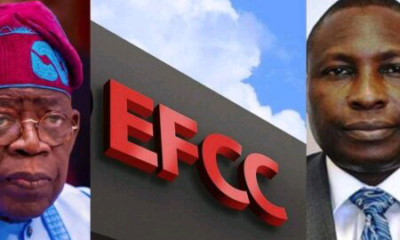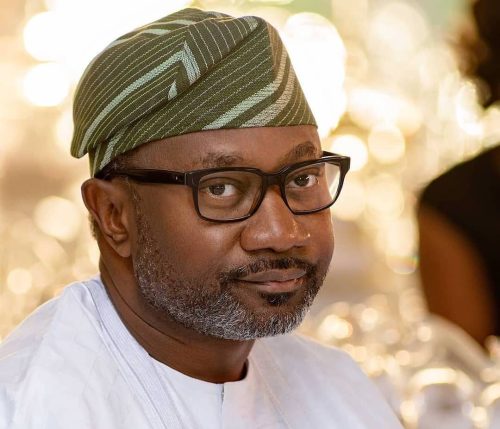Billionaire businessman, Mr Femi Otedola, yesterday said more than N2 trillion was siphoned in questionable fuel subsidy claims under the Goodluck Jonathan administration, narrating how he warned the ex-President about fraudulent oil marketers at the time.
In a statement on recent issues in the oil and gas sector, especially in the downstream, Otedola also congratulated Aliko Dangote, on the success achieved so far since his refinery commenced operations, describing it as a historic leap for Nigeria’s energy independence and economic future.
The philanthropist maintained that all these fraudulent subsidy claims were tied to depot licenses, noting that the policy rewarded neither transparency nor innovation, but encouraged rent-seeking and corruption.
“On subsidy, I personally warned President Goodluck Jonathan that he was being misled. The system was built to benefit depot owners, and DAPPMAN (Depot and Petroleum Products Marketers Association of Nigeria) members became the primary beneficiaries.
“Over N2 trillion was siphoned through questionable claims, all tied to depot licenses. The policy rewarded neither transparency nor innovation, it encouraged rent-seeking and corruption,” the business mogul stated.
But more importantly, he noted that credit must go to President Bola Tinubu for doing what no other leader before him had the political will to execute, which is the full deregulation of the downstream petroleum sector.
This singular act, he said, has broken the grip of entrenched interests and ushered in a new era of transparency, healthy competition, and customer-centric service delivery.
“In a sector long plagued by rent-seeking, subsidy fraud, product diversion, and smuggling, this reform marks a decisive break from the past and lays the foundation for a more efficient and accountable energy market. Yet despite this progress, there are still voices clinging to the old ways. Voices determined to resist change, even when it’s clear the tide has turned,” Otedola wrote.
Besides, having followed recent commentary around fuel supply issues, Otedola said that he felt compelled to provide some perspective, especially as it relates to the future of the country, pointing out that Nigeria remains threatened by entrenched cabals who still believe they can block the winds of reform.
Specifically, Otedola took on DAPPMAN, a group of oil marketers that has had a running battle with the Dangote Refinery in recent days on the ground of alleged plans by Dangote to monopolise the sector.
Otedola, going down memory lane, recalled that he founded DAPPMAN 23 years ago, specifically in 2002, with a clear mission to challenge the dominance of the major marketers and give independent depot owners a fair platform to thrive.
According to him, at the time, the association aimed to fill critical supply gaps left by an inefficient downstream system. However, he emphasised that since then, times have changed, with many of the original players having exited the scene, and those left, clinging to assets that no longer reflect today’s business realities.
“But history has shown time and again: you can delay change, frustrate it, even sabotage it but you can never stop it. I founded DAPPMAN in 2002 (23 years ago) with a clear mission, to challenge the dominance of the major marketers and give independent depot owners a fair platform to thrive.
“I personally structured the group, appointing the late George Enenmoh, then Managing Director of Ascon Oil, as Chairman, while I served as Vice Chairman and Sayyu Dantata as Secretary. At the time, depot ownership was strategic. We were filling critical supply gaps left by an inefficient system.
“But times have changed. Many of the original players have exited the scene, and those left are clinging to assets that no longer reflect today’s business realities . I advised some of them as far back as last year to sell their depots as scrap while they still had value. Nigeria now has over 4 million metric tons of storage capacity, most of it idle. With the Dangote Refinery now supplying fuel locally, the old business model is crumbling.
“Zenon Oil pioneered the modern diesel business in Nigeria and grew to become the largest supplier in the country. We built depots to store our imported diesel because the market was import-driven and riddled with inefficiencies. But with Dangote’s refinery fully operational, those gaps no longer exist.
“We now have domestic production and local supply efficient, reliable, and proudly Nigerian. Furthermore, we must not fail to recognise the attendant benefits of eliminating the grid lock around the Ibafon , Tincan and Apapa areas due to the operations of the Dangote Refinery,” Otedola argued.
Today, more than just producing fuel, Otedola noted that Aliko Dangote has elevated the entire logistics chain, purchasing 8,000 brand new CNG eco-friendly trucks that will distribute across the country with less pollution and fewer breakdowns, unlike the aging, rickety trucks still used by some operators.
He added: “I know this business intimately. I was king of it and at the peak of it in 2005 (20 years ago) , I was conferred with the life patron of the PTD (Petroleum Tanker Drivers) union by Mr Akinlaja. So, when I say the game has changed, I speak from deep experience.
“What is DAPPMAN fighting for today? To preserve a model built on fuel imports, subsidy exploitation, and outdated infrastructure? That era is fast disappearing. The setting up of depots was mainly to collect PFIs. No depots, no PFIs (Pro Forma Invoices) from NNPC who were sole suppliers of gasoline (petrol) at the time and which thus led to the breeding of complacent importers whose sole agenda was on arbitrage and subsidy margins.”
Since there are no more PFIs, the businessman argued that there is no reason why the Dangote Refinery should subsidise DAPPMAN with N1.5 trillion which they are asking Dangote Refinery to pay and subsequently pass this cost to consumers.
While saluting the courage of ‘my brother Aliko Dangote, like Amazon Incorporated’ in bringing about transformative change in the downstream sector, Otedola emphasised that the myth that depots generate massive employment was untrue.
“Depots do not drive employment as some claim. A typical depot employs perhaps five people, gatekeeper included. In contrast, a single filling station can provide jobs to dozens of Nigerians—from pump attendants to cashiers, security personnel, and cleaners.
“If anything, DAPPMAN members should be focusing on owning and scaling last-mile retail outlets, not holding on to tanks built for a fuel import economy that no longer serves us”, he stated.
Taking a cue from the global picture, the philanthropist pointed out that depots in Amsterdam or Houston were designed to serve export markets, especially Africa, but that with Nigeria now refining locally, such infrastructure is increasingly unnecessary.
“The same thing happened in the cement industry. Once Nigeria started producing cement locally, the bulk carriers that used to dock at our ports were retired, many sold as scrap. The same outcome awaits fuel depots,” he said.
If DAPPMAN members do not adapt, Otedola argued that they will not only become irrelevant, but that they may go bankrupt.
Instead of resisting progress, he urged them to consider selling, restructuring, or investing in new value chains, explaining that if they truly believe in competition, they could even come together and acquire the Port Harcourt Refinery and see if they can succeed where NNPC could not.
Even in developed markets, he stated that refinery operators are downsizing their depot footprint, with many converting them into bonded warehouses or exiting completely and mentioning the case of the Folawiyo Group, known for its foresight and integrity, which sold its depot and exited early. “That is strategic thinking,” he posited.
“DAPPMAN had its place but today, its relevance is fast fading. We must stop clinging to outdated privileges and focus on a new era built on self-sufficiency, transparency, and sustainable value creation. Aliko’s refinery is not the problem. It is the solution. Let’s move forward,” he stated.
Stressing that Africans are proud of Aliko Dangote, he said: “And yes, my dear brother Aliko, you can now go to Monaco and rest jejely like me. You’ve earned it.”

 BIG STORY22 hours ago
BIG STORY22 hours ago
 BIG STORY2 days ago
BIG STORY2 days ago
 BIG STORY3 days ago
BIG STORY3 days ago
 BIG STORY3 days ago
BIG STORY3 days ago
 BIG STORY3 days ago
BIG STORY3 days ago
 BIG STORY5 days ago
BIG STORY5 days ago
 BIG STORY5 days ago
BIG STORY5 days ago
 BIG STORY3 days ago
BIG STORY3 days ago























